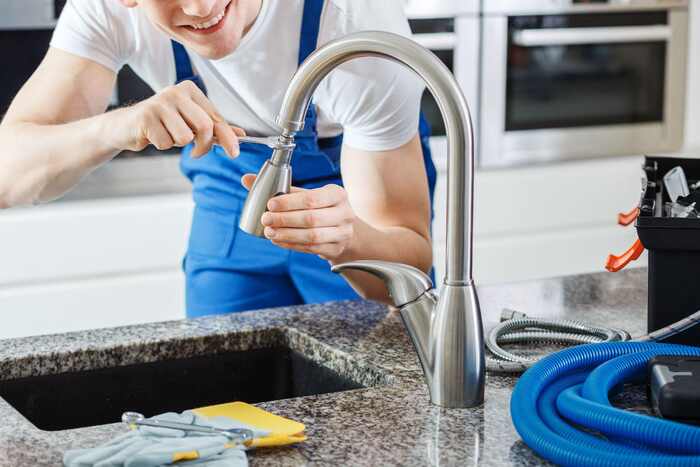
Embarking on a home renovation journey is an exhilarating experience, offering the opportunity to transform your space. However, amidst the excitement, plumbing, a critical component, often gets sidelined. Whether it’s a kitchen upgrade, bathroom makeover, or a comprehensive home renovation, understanding plumbing’s role as a Chicago homeowner is essential to ensure that your project is aesthetically pleasing and functionally sound.
Understanding the Basics of Plumbing in Renovation
Understanding your home’s existing plumbing system is the first critical step before any renovation. This includes knowledge of the layout, material, and age of your plumbing. Such insight is crucial for planning changes or additions. Consulting with licensed plumbers or professional contractors is always advisable, as they can offer insights on building codes, permits, and best practices. Any renovation, particularly in kitchens and bathrooms, may require changes to your water supply and drainage lines, and it’s important to consider how these changes will affect the overall system.
Kitchen and Bathroom Renovations
Kitchen and bathroom renovations often involve rethinking the placement of sinks, toilets, and showers, which can significantly affect plumbing. Altering layouts can be expensive since it may involve relocating pipes. When selecting fixtures, it’s important to choose ones that complement your existing plumbing, considering factors like water pressure and the fixture’s water usage. Renovations, especially in older homes, also present an opportunity to replace outdated or deteriorating pipes with new, durable materials.
Adding New Bathrooms or Extensions
When adding a new bathroom or extension, assessing your current plumbing system’s capacity to handle the additional demand is crucial. This might mean upgrading your water heater or installing additional lines. It’s important to understand local regulations, as new plumbing often requires permits and inspections. Additionally, for extensions, especially in areas like basements or below the main sewer line, installing a sump pump or sewage ejector system might be necessary.
Energy Efficiency and Eco-Friendly Choices
Incorporating eco-friendly choices in your renovation can lead to long-term savings and environmental benefits. Opting for water-efficient fixtures like low-flow toilets and showerheads can reduce water usage significantly. Tankless water heaters are another energy-efficient option, providing hot water on demand and saving space. Where possible, reusing existing plumbing materials or choosing recycled or sustainable options can also contribute to a more eco-friendly renovation.
Dealing with Unexpected Plumbing Issues
Renovations often have a way of uncovering hidden plumbing issues, particularly in older homes. Whether it’s corroded pipes, outdated systems, or unforeseen leaks, these surprises can derail your project timeline and budget. It’s crucial to have a contingency plan and budget in place for such unexpected repairs or upgrades. Regular inspections by a plumber during the renovation are vital in catching issues early, saving both time and money in the long run.
In addition to these precautions, maintaining open communication with your renovation team about any plumbing discoveries is key. Sometimes, these issues can lead to a change in renovation plans, necessitating different materials or a reconfiguration of space. For instance, discovering old, galvanized pipes might mean upgrading to copper or PVC to ensure longevity and safety.
Furthermore, these surprises can sometimes be opportunities in disguise, allowing you to upgrade your plumbing system to modern standards, thereby increasing your home’s value and efficiency. Being flexible and prepared for these scenarios can turn potential problems into improvements for your home.
Smart Technology in Plumbing
Incorporating smart technology into your plumbing is not just a step towards modernization; it’s a move towards greater efficiency and control. Smart water monitors, for instance, are invaluable in tracking water usage, detecting leaks, and providing the capability to shut off water automatically in case of a leak. Advanced shower systems offer customization and help conserve water, while touchless faucets bring hygienic benefits and aid in water conservation.
These innovations can also lead to significant cost savings over time. Smart water heaters, for example, can be programmed to heat water only when needed, reducing energy consumption. Leak detection systems can prevent major water damage, saving on potential repair costs. Additionally, smart irrigation systems for gardens can regulate water usage based on weather conditions, ensuring optimal watering without waste.
These technologies not only contribute to a more sustainable home but also offer the convenience of monitoring and managing your plumbing system remotely through smart devices. Homeowners can enjoy a more connected, efficient, and future-ready home by integrating these intelligent solutions.
After the Renovation: Maintenance Tips
After the renovation, it’s important to keep an eye on new installations for any signs of leaks or issues. Setting up a regular maintenance schedule for your plumbing system can ensure its longevity and efficiency. Staying informed about the latest plumbing and home technology can also help you make better decisions for future upgrades or repairs.
Conclusion
Plumbing plays a pivotal role in home renovations. By understanding its complexities and making informed decisions, you can ensure the success of your renovation project. Good plumbing not only enhances the functionality of your home but also contributes to its overall value. Collaborating with professionals will help you navigate the intricate world of plumbing in home renovation, ensuring both beauty and efficiency in your revamped space.
